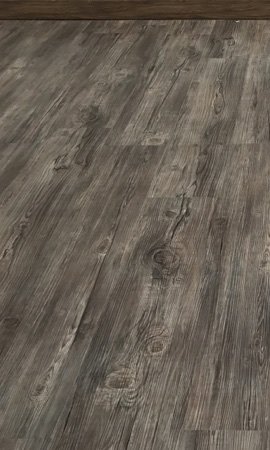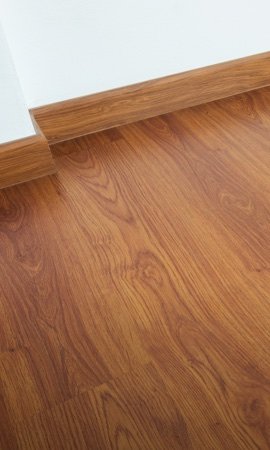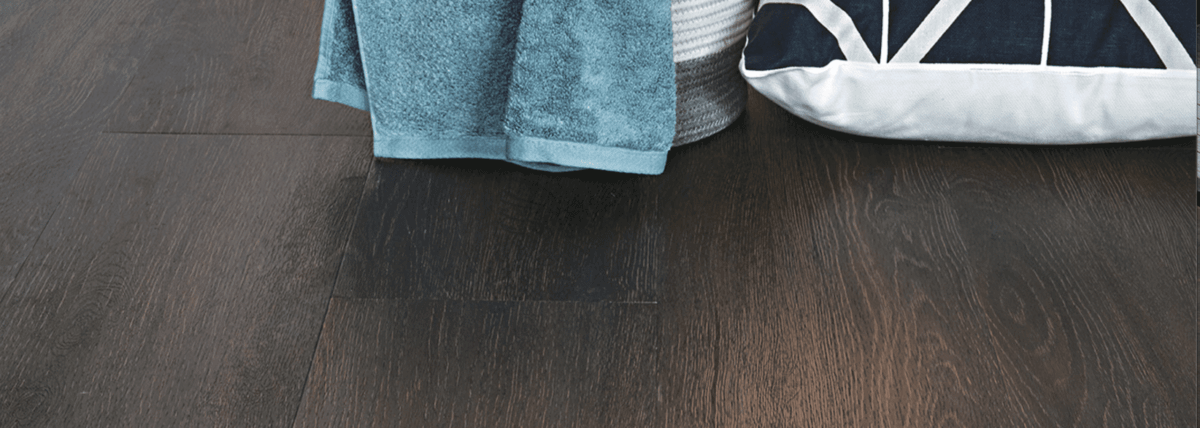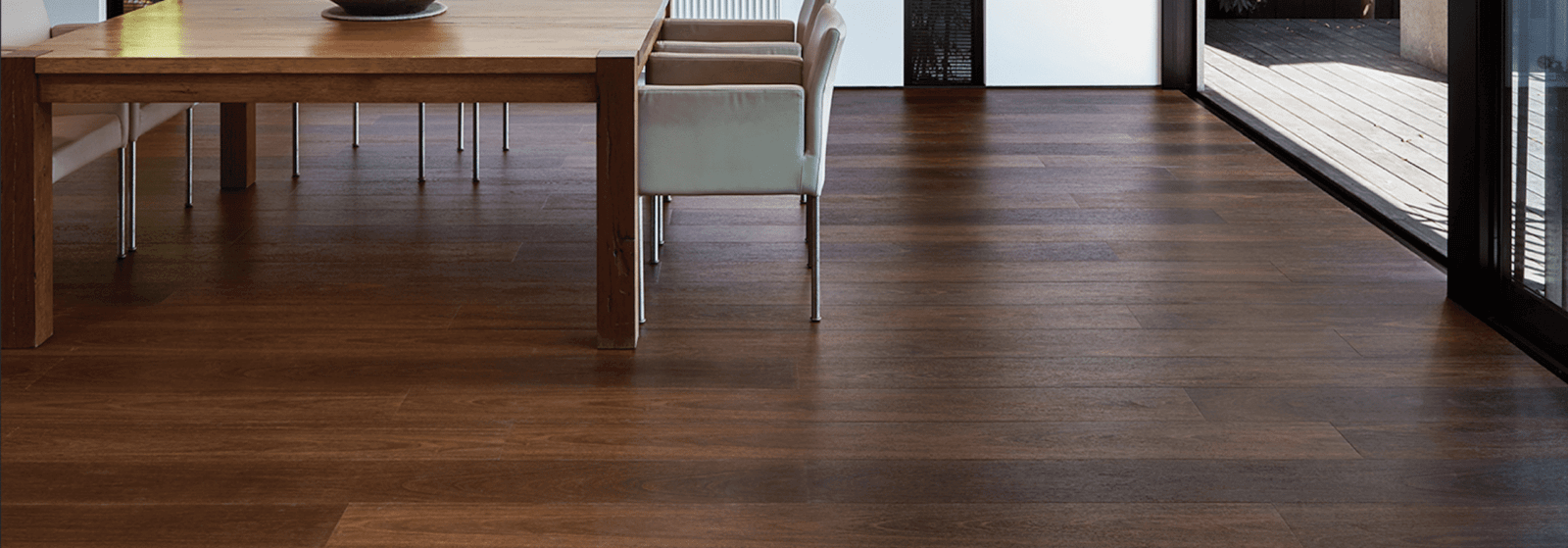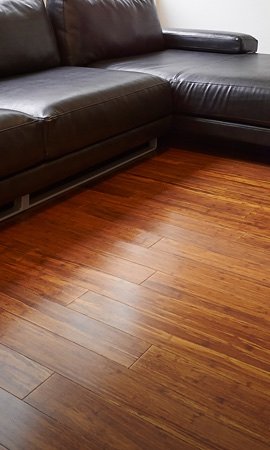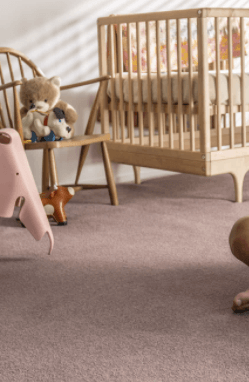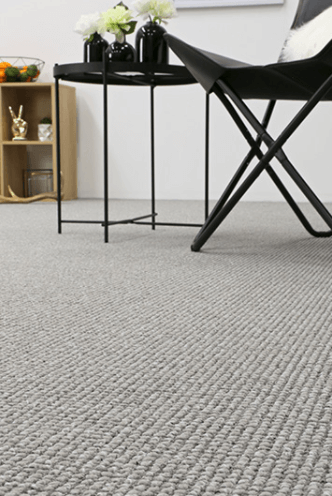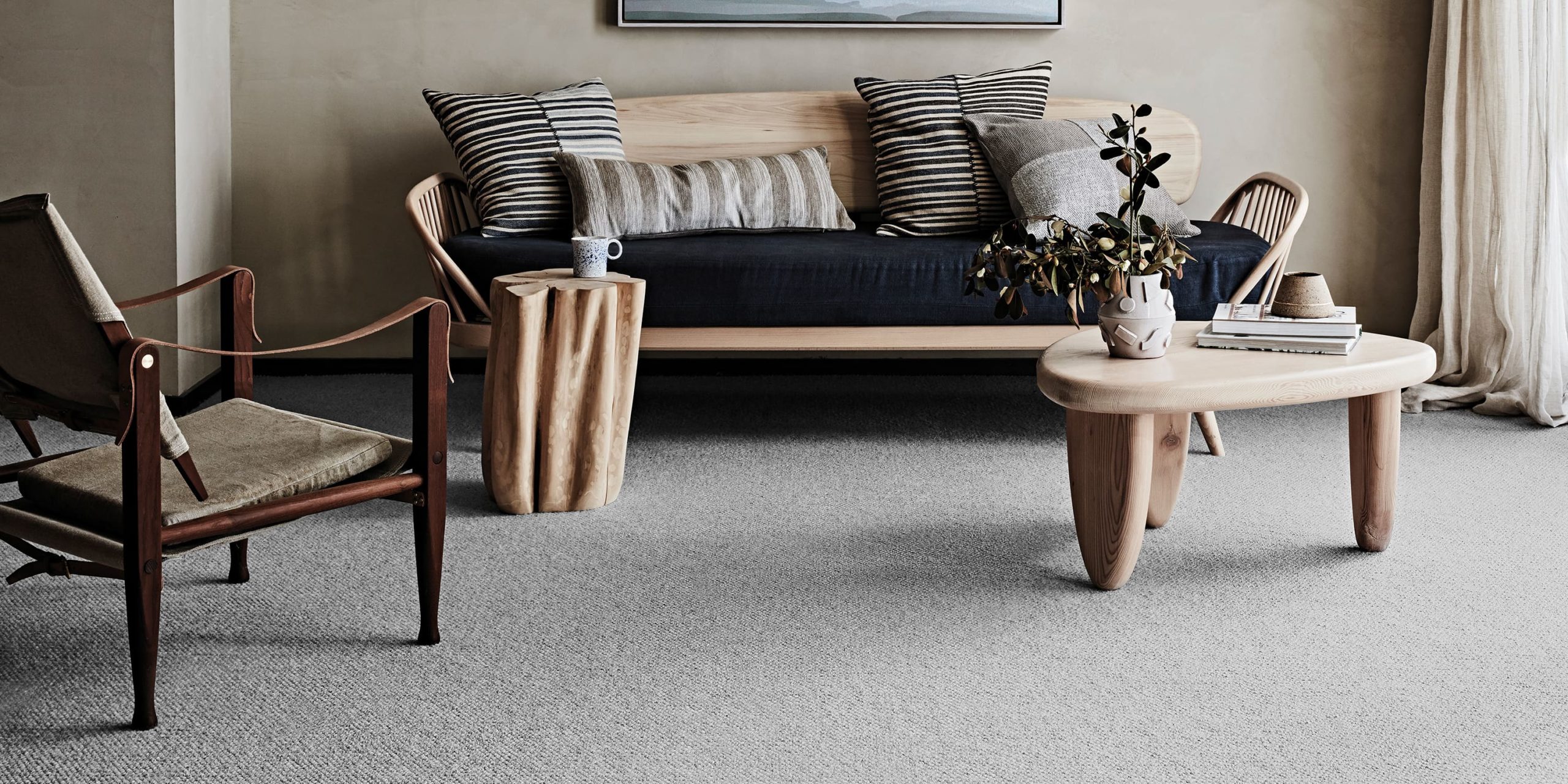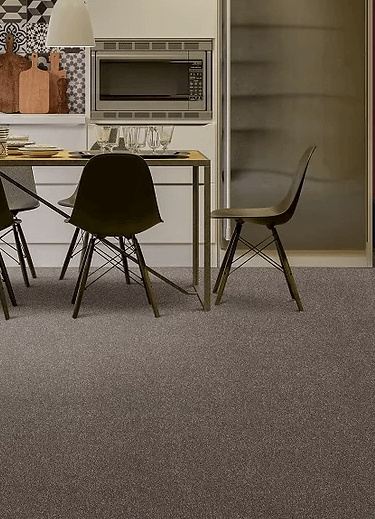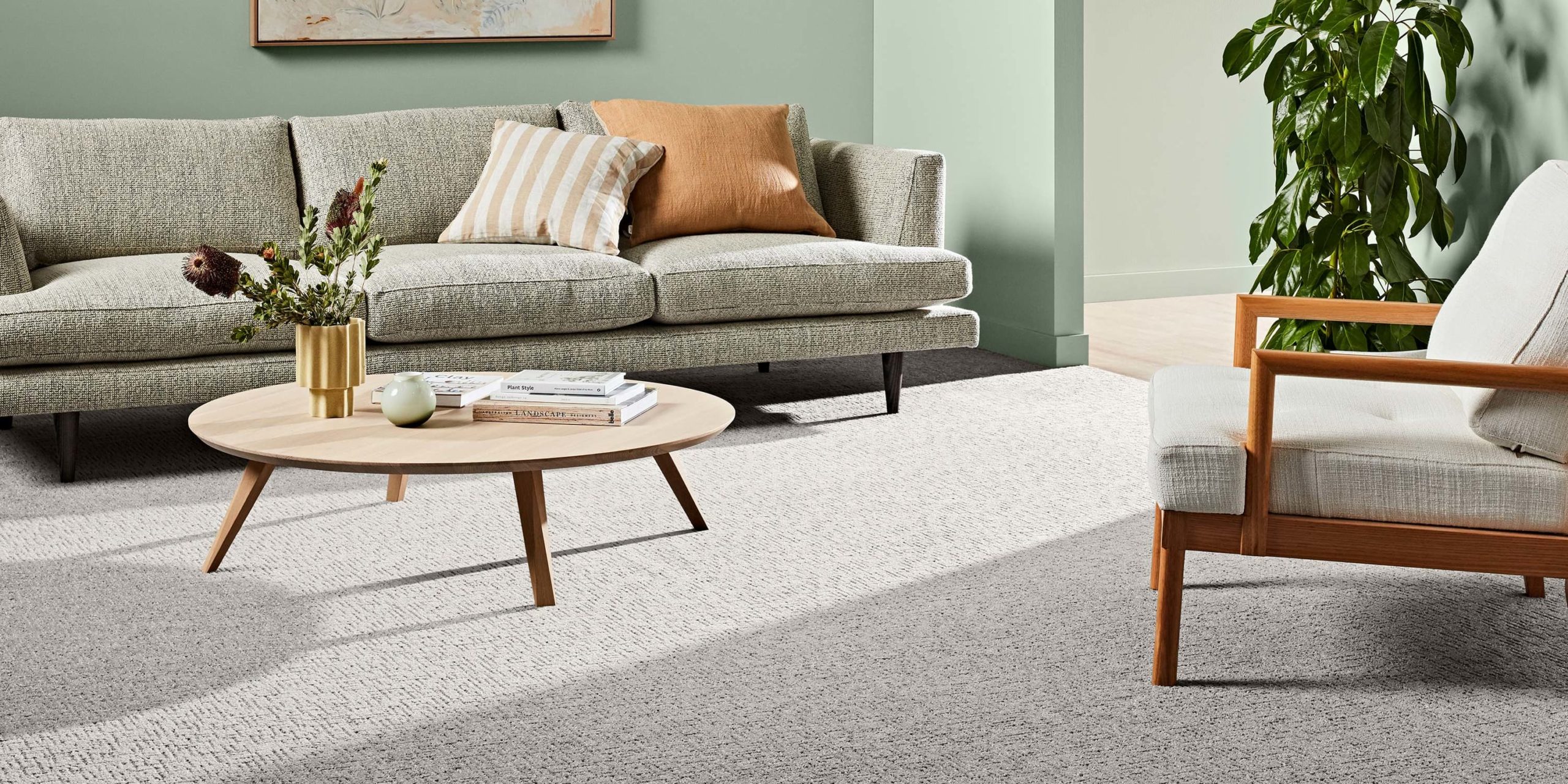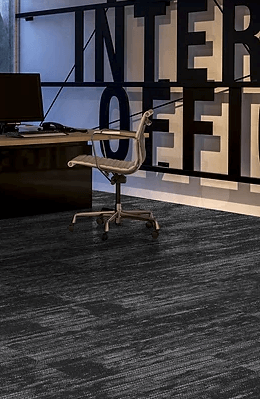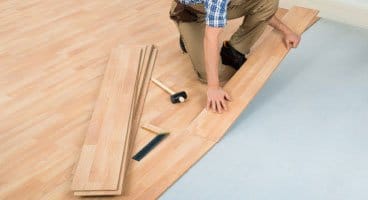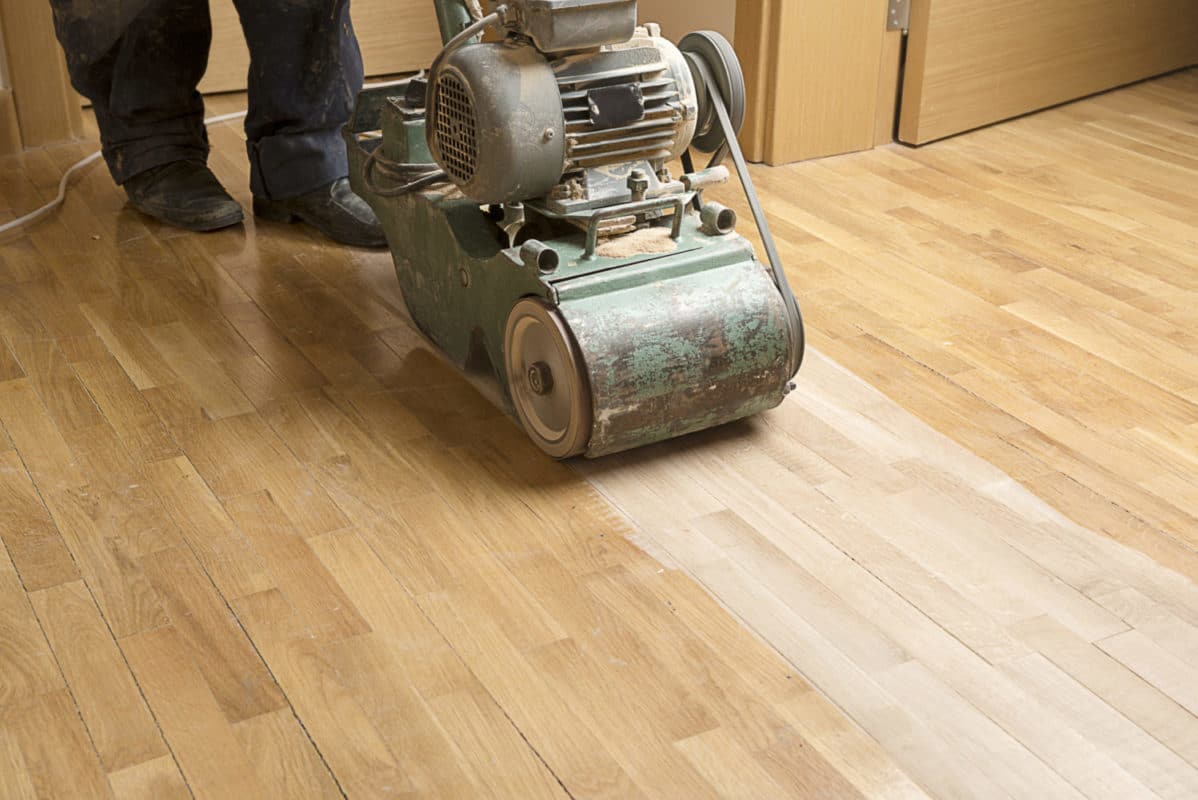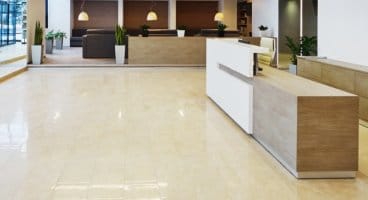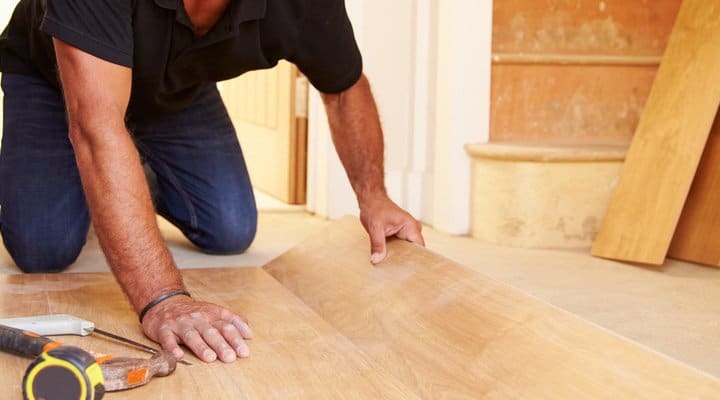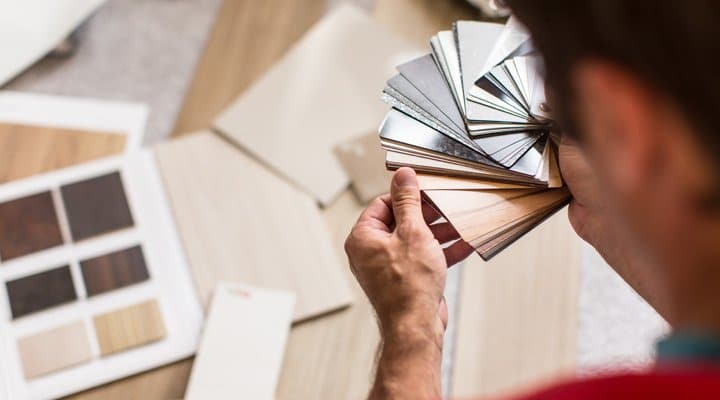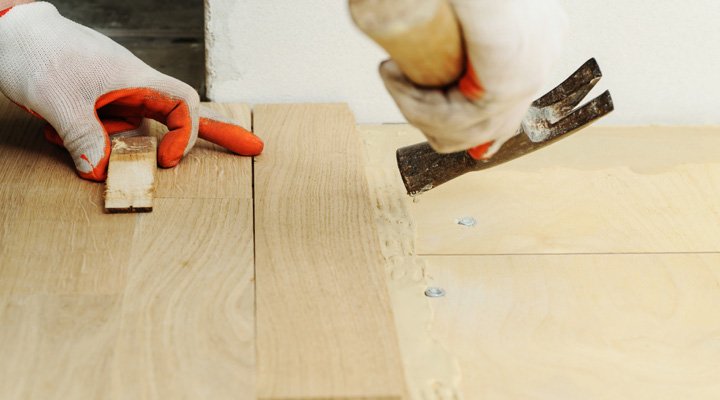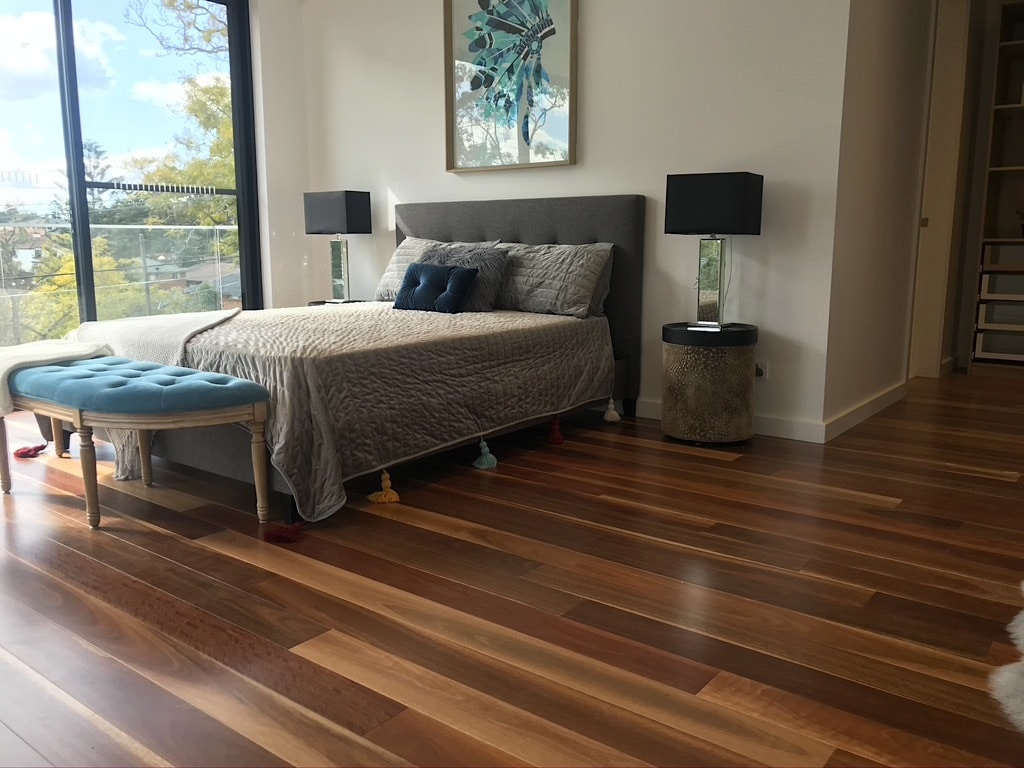

30 Apr Waterproof Engineered Timber Flooring
People love waterproof flooring, and they love real timber in their floors. Historically, we’ve learned that timber and water does not bode well together. Whilst there are plenty of synthetic waterproof or water resistant floors out there in the market, would it be too much to ask for waterproofing and real timber flooring in one package?
This article will introduce the pinnacle of waterproofing technology – HydroPro Timber – real timber flooring which can hold their own against wet areas of your home!
Is Timber Flooring Waterproof?
Solid timber wood is not waterproof as they will absorb water over extended periods of exposure and swell. Traditional engineered timber counterparts with plywood core boards are just as prone to water damage. (Engineered timber flooring is essentially a veneer of real timber fused to a core board which is usually made of plywood)
People have thought of various methods to somewhat reduce this problem; long acclimatisation periods and moisture-resistant underlayment to name a few. However, advancements in flooring technology have allowed us to overcome another huge hurdle! The HydroPro Timber range allows you to avoid the problems associated with traditional wood flooring when it comes to moisture and water.
What is HydroPro Timber?
As the first water resistant engineered timber technology, HydroPro Timber brings dimensional stability superior to traditional plywood-based engineered floorboards as it utilises a limestone composite core board which does not absorb water.
HydroPro Timber is made up of four primary layers and a handy click-lock installation system:
- Wear Layer – The real timber veneer of HydroPro Timber is lacquered with 8 – 11 coatings of world class UV lacquer which protects the surface from scratches, wet spills and sunlight.
- Timber Veneer – HydroPro’s timber veneer is made of authentic and durable Australian hardwoods, European oak timber, and even bamboo flooring.
- Core Board – The secret to HydroPro Timber’s waterproofing lies in the limestone composite core board which functions as a 100% waterproof base. This makes it impervious to subfloor moisture or leakages which is often the demise of other wood floors.
- Backing Layer – Beneath the core is an adaptive timber backing layer which balances the foot pressure, reducing the strain on the click-lock system and further improving it’s dimensional stability.
- Click-Lock System – The HydroPro Timber floors are easy to install as a floating floor, and are constructed with the licensed Unilin Click-Lock System. It does not need any smelly adhesives or loud nails for installation.
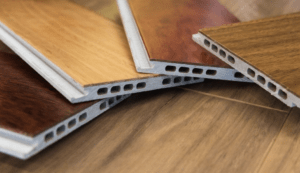

Types Of HydroPro Timber Available
HydroPro Engineered Australian Timber Flooring
Australian timbers give a natural warmth and authentic look in any home. This was our first range of waterproof engineered timber flooring launched over 5 years ago, and have performed extremely well in various conditions. Shop waterproof Aussie hardwood colours!
- Look: Warm and inviting. Expect reddish-pink tones typical of Blue Gum, but other Australian hardwood options might be available with varying colours.
- Feel: Solid and luxurious underfoot. The natural timber provides a classic and timeless look.
- Ambience: Creates a feeling of warmth and connection to nature. Perfect for living rooms, dining rooms, and bedrooms.
- Durability: Australian hardwoods are very tough and achieve a Janka Rating of 9.0 – 11.0kN.
HydroPro Engineered European Oak Flooring
European Oak in HydroPro was developed following the popularity of Aussie timbers. People wanted more colours, especially lighter cream and beige tones which seemed to be the trend. Explore our waterproof European Oak range!
- Look: Sophisticated and elegant. European Oak boasts beautiful wood grain patterns, often with a light brown or honey-coloured hue. HydroPro European Oak has the biggest range of colours, and are popular among architects.
- Feel: Smooth and sturdy. The engineered construction ensures stability and reduces concerns about warping or gapping. Furthermore, oakwood is more warm and comfortable underfoot with a natural woodgrain surface.
- Ambience: Exudes a timeless European aesthetic. Ideal for living rooms, hallways, and home offices.
HydroPro Engineered Bamboo Flooring
Bamboo flooring has been incredibly popular in the past… that is until we realised they love to absorb moisture and swell. But what if they didn’t? Introducing waterproof bamboo flooring! Explore our full range of waterproof bamboo colours.
- Look: Modern and sleek. Bamboo offers a clean, linear grain pattern and comes in a variety of finishes, from natural to stained.
- Feel: Dense and smooth. Engineered bamboo offers excellent durability and is a good choice for high-traffic areas.
- Ambience: Creates a contemporary and eco-friendly feel. Well-suited for kitchens, living rooms, and even bedrooms.
- Durability: Strandwoven bamboo has the hardest surface out of the three as it achieves a Janka Rating of 14 – 16kN. This makes HydroPro bamboo great for active families with kids and pets.
Pros and Cons of Waterproof HydroPro Timber:
Advantages:
- Virtually Waterproof – It can withstand up to and over 4 days of direct submersion in water without swelling or receiving damage, and has a 100% waterproof core board. Note that excessive water exposure can cause the natural timber or bamboo surface to discolour like any natural material.
- Dimensional Stability – The composite core board is much more stable than engineered and synthetic flooring, which is incredibly handy for the tough climate in Australia. A wood backing layer further prevents warping for maximum structural durability. HydroPro Timber has a 30 year structural warranty to attest to its strength.
- Real Hardwood – HydroPro comes in authentic hardwoods which we trust and love. Nothing beats real timber when it comes to aesthetics. Furthermore, homes with real timber flooring see the highest return on investment in terms of property value.
- Fast Installation – HydroPro uses a Unilin patented click-lock system which is both easy to use and hardwearing. This allows minimum hassle during installation and future renovations as it requires no glue or nails.
Disadvantages:
- Dearer – HydroPro Timber is on the higher end of the market and contains real hardwood. Although it is not as expensive as solid timber, it is still priced higher than the other synthetic waterproof options. If you are interested in a quote, feel free to inquire through our email form or hit the live chat!
- Very Heavy – If you plan on DIY installing HydroPro flooring, be advised that each box can weigh up to 30kg, especially the European Oak options! However this doubles as a benefit because heavier planks feel more solid underfoot!
Alternative Best Water Repellent Flooring:
Porcelain & Ceramic Tiles
The trusty porcelain and ceramic tiles are not only fully waterproof but also completely seal your floors, making them the only true viable option for bathrooms which have a very high risk of flooding. Porcelain tiles are slightly more expensive and durable than ceramic, although both do the job well.
Hybrid Flooring
Hybrid floors are relatively new in the Australian flooring industry, first introduced as the 100% waterproof wood imitating flooring. SPC (Stone & Plastic Composite) hybrid floors are slightly more affordable and more rigid than its WPC (Wood & Plastic Composite) cousin. The WPC hybrid is slightly more comfortable underfoot, but also dearer.
Vinyl Plank Flooring
Vinyl planks are waterproof floors used for both commercial and some residential settings. It is made up of PVC (Polyvinyl Chloride) which is a form of plastic, and is often soft and malleable. Vinyl planks are more popular within school grounds, labs and medical centres since the floors can be fully sealed to minimise chemical contamination.
Laminate Flooring
Laminate flooring has been historically popular as the most affordable wood flooring. First introduced as an economical and renewable flooring solution, higher grade laminate floors have been developed which exceeded solid timber in both durability and water resistance. The majority of laminate flooring is not waterproof, but can hold their own against spills easily.
More recent technology have unlocked fully waterproof ranges like AquaFloor Laminate.
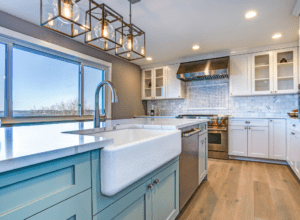

Direct Comparisons with HydroPro Timber
HydroPro Timber vs Hybrid Flooring
Waterproofing: Hybrid flooring is hailed as the ultimate waterproof flooring which combines the best aspects of laminate and vinyl floors. You could leave a hybrid floorboard in water for months with zero water damage. As such, hybrid flooring takes the win here.
Durability: Hybrid floors are very abrasion resistant and slightly stronger than timber on the surface. However, HydroPro Timber has a longer lasting structural durability and will definitely out live hybrid flooring in terms of warranties. HydroPro has less warping from temperature changes, making it more hardy against Australia’s extreme climate with hot summers and freezing winters. HydroPro timber wins in terms of overall longevity, however hybrid floors are slightly more scratch resistant.
Appearance & Design: Advancements in embossing and print technology has allowed hybrid floors to look and feel almost identical to timber wood flooring in even more colours than wood type floors. HydroPro on the other hand offers the real deal – timber wood flooring, however it is limited to select hardwood colours. Essentially, hybrid floors have a larger range of colours to choose from, but in the end they don’t offer real wood.
Affordability: Hybrid floors are considerably more economical than HydroPro Timber when it comes to waterproof flooring. They can be supplied and installed for anywhere between $60 – $100 per square metre. HydroPro Timber is more expensive as it offers real timber and unparalleled water resistance amongst wood floors.
Installation: Both hybrid floors and HydroPro Timber are floating floors which make them much easier to install than direct stick alternatives. Floating floors use click-lock systems which allow the forces of gravity and friction to hold them in place. However, hybrid flooring requires a very even subfloor, meaning it may incur extra subfloor levelling costs when installing. Overall, installation difficulty is a tie since hybrid floors are slightly easier to click together, but risk requiring a subfloor levelling.
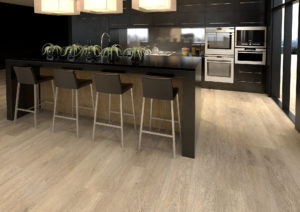

HydroPro Timber vs Laminate Flooring
Waterproofing: Laminate floors have advanced significantly in water resistance, however there is no such thing as 100% waterproof laminate flooring. The highest grade laminate floors offer up to 72 hours of water resistance, meaning prolonged moisture exposure will inevitably lead to water absorption and damage. HydroPro Timber on the other hand is impervious to moisture and can only be damaged from direct flooding for a risk of swelling, and is hence the winner without a question.
Durability: Laminate floors are slightly more scratch and dent resistant on the surface, however are less dimensionally stable meaning they are more prone to expanding or shrinking based on the humidity and temperature. Overall, HydroPro will outlive the average laminate flooring twofold. HydroPro Timber takes the win for overall longevity, although laminate floors are generally more scratch resistant.
Appearance & Design: This one largely depends on your personal preferences. HydroPro Timber offers real wood which laminate floors attempt to replicate. On the other hand, laminate flooring has over hundreds of different designs and colours to choose from whilst HydroPro Timber is restricted to a select few hardwood colours.
Affordability: HydroPro is on the higher end with prices ranging over $110 per square metre fully installed, whereas Laminate flooring can be obtained for as low as $40 per square metre fully installed. Generally cheaper laminate flooring comes with lower water resistance, so be careful if that is a feature which you are looking for. Laminate flooring definitely wins when we consider the pricing, in fact it is the most affordable flooring range in the market.
Installation: Laminate floors and HydroPro Timber are both floating floors which make them easier to install than direct stick alternatives. Floating floors use click-lock systems which allow the forces of gravity and friction to hold them in place. As such, both laminate and HydroPro Timber are very easy to install. In terms of installation, both are DIY friendly and end in a tie.
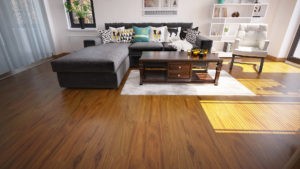
HydroPro Timber vs Vinyl Plank Flooring
Waterproofing: Vinyl planks are full waterproof which means they will never absorb moisture, warp or weaken in the presence of water. HydroPro on the other hand will not hold against direct water submersion for extended periods of time (days). As such, vinyl planks take the win when it comes to waterproofing.
Durability: Vinyl flooring is made of polyvinyl chloride (PVC), which is a form of plastic that is softer and more susceptible to cuts and abrasions. HydroPro Timber has a more stable core as vinyl’s PVC composition is more prone to expanding or shrinking from temperature changes. Thus, HydroPro Timber is more structurally durable on both a physical and thermal level and is the winner in terms of durability.
Appearance & Design: Vinyl floors tend to look more artificial and feel more artificial compared to any other synthetic floors. As HydroPro Timber is made of beautiful authentic hardwood, there is no contest when it comes to the appearance and design between these two waterproofing solutions. Whilst vinyl planks may offer more colours, HydroPro Timber definitely takes the aesthetic victory.
Affordability: Vinyl floors are much cheaper to purchase, with average costs from $35 – $50 per square metre in NSW as of 2025. However, the installation costs can range around $30 – $50 per square metre depending on the method (glue down being more expensive than a floating installation). HydroPro Timber is more expensive overall, which makes Vinyl plank flooring the winner.
Installation: Vinyl plank flooring requires glue to hold them to the subfloor, and is hence not a floating floor. The use of adhesives makes the process more expensive, time consuming and difficult. Vinyl flooring also requires a very even subfloor which may incur extra levelling charges, and is thus slightly more difficult to install than HydroPro Timber, which is a floating floor.
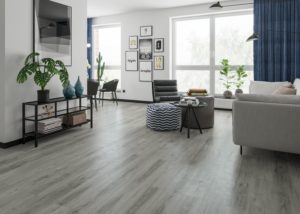

Conclusion – Is Waterproof Timber Flooring Any Good?
Whether or not HydroPro Timber suits you really depends on where you want to install them and your budget for flooring. If you wish to install the waterproof timber flooring all throughout the house (except the bathroom) – perfect! If you wish to install flooring in the bathroom, we would advise against using timber at all. Tiles would always be the best go to for bathrooms.
Ultimately, HydroPro Timber is the first certified pioneer of water resistant timber flooring in the Australian market. This makes it dearer than most synthetic waterproof floors like hybrid or vinyl, but in the end you get what you pay for. If you are interested in learning more about HydroPro Timber, why not send one of our friendly staff a live chat message?
